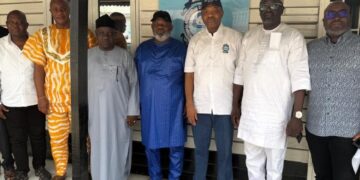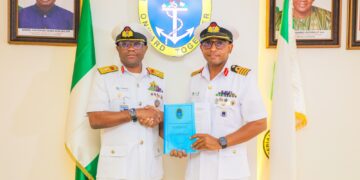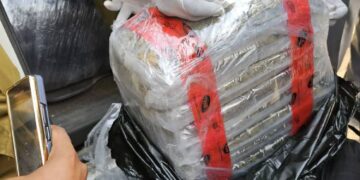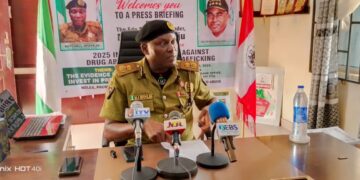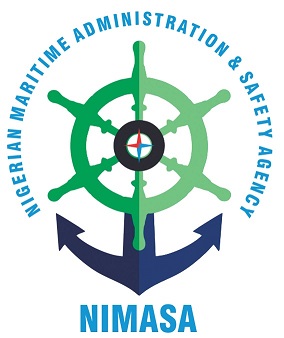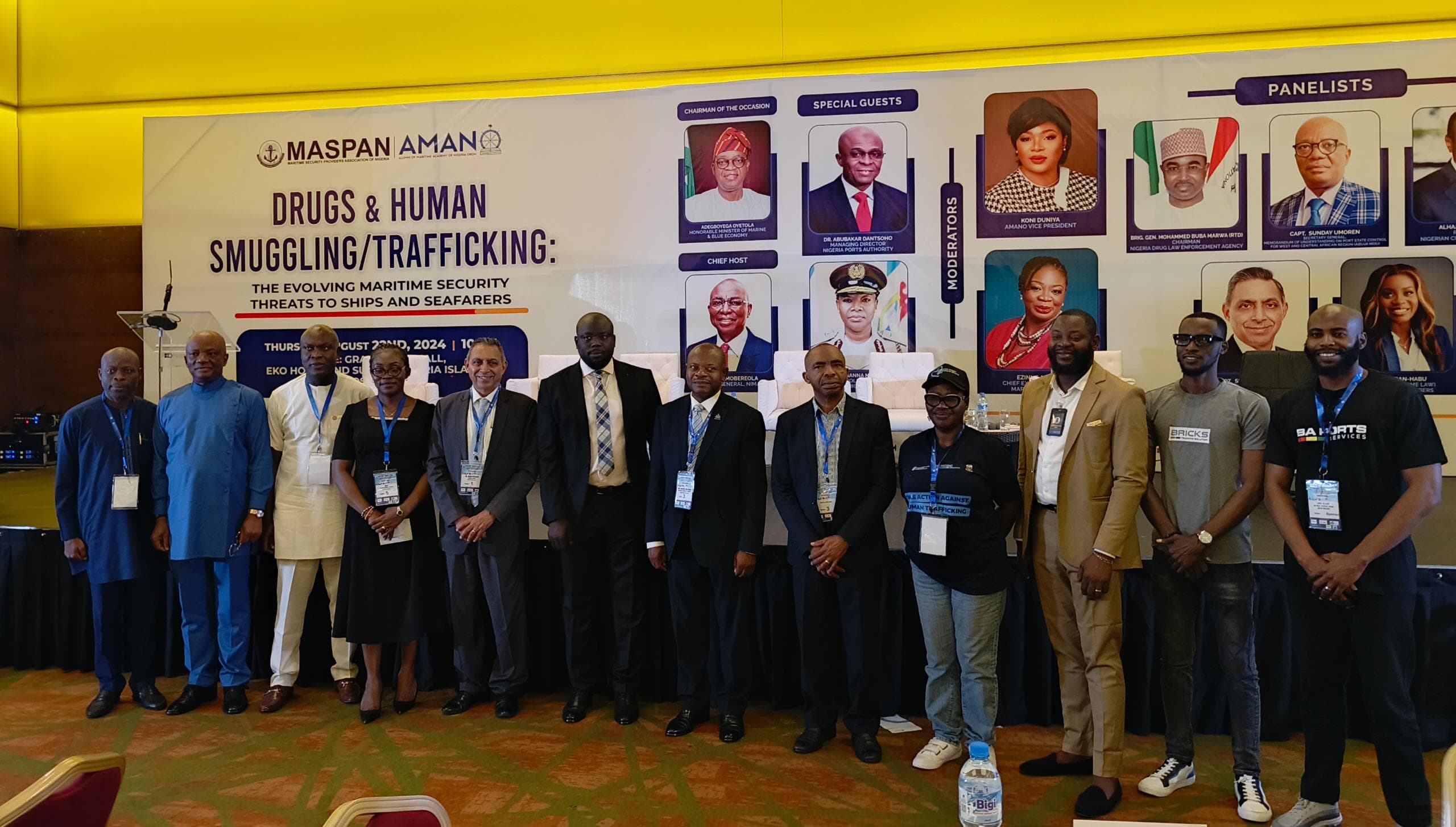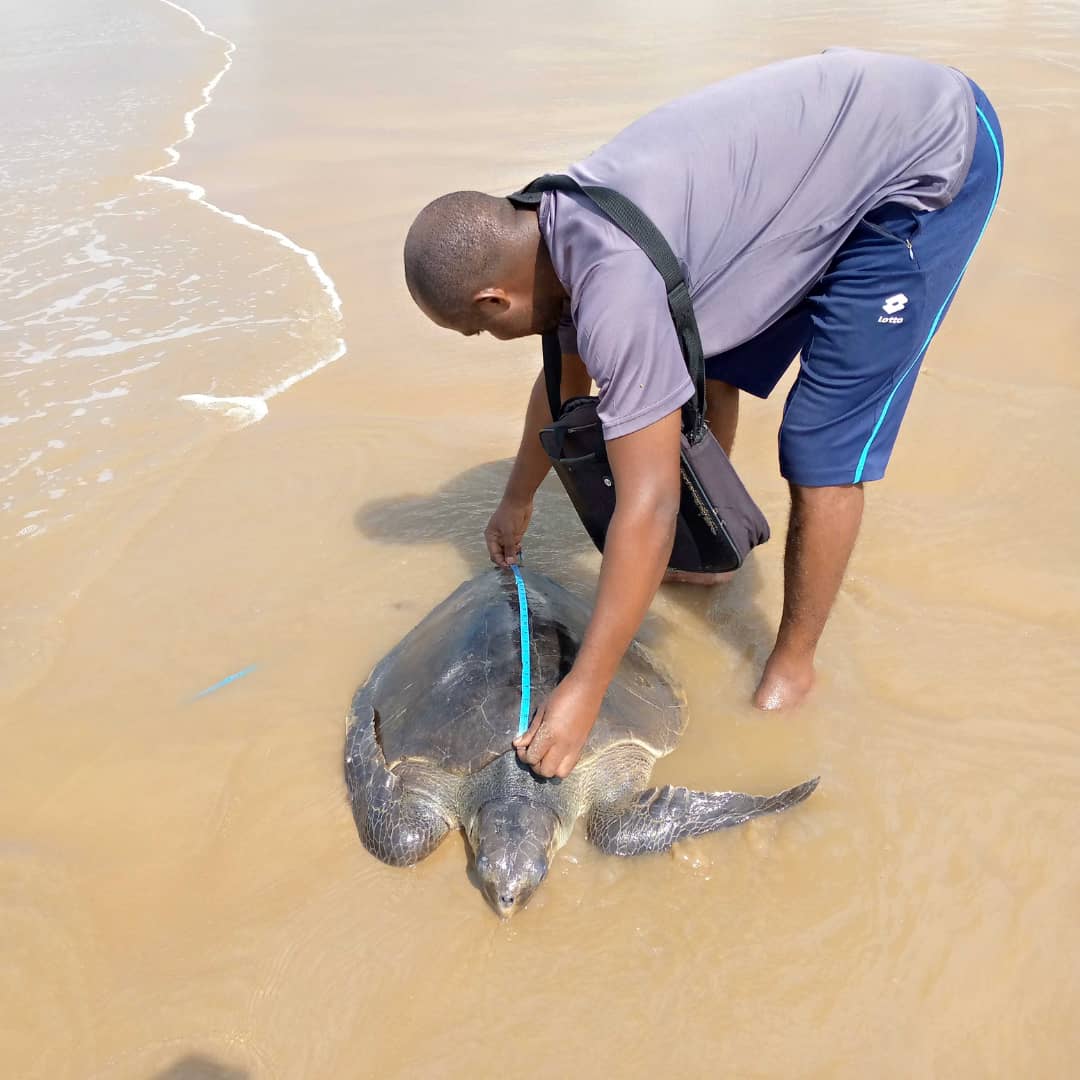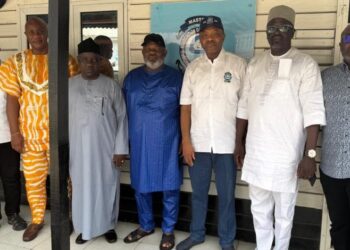Worried by the colossal losses and traumatic seafarers’ experiences during drug bursts onboard ships, the National Drug Law Enforcement Agency (NDLEA) has been advised to review its procedures for handling incidents involving drugs onboard ships, as shipowners and seafarers are often unaware of the trafficking.
This was canvassed by the Director, Operations, Pacific Basin Shipping Limited, Hong Kong, Mr. Suresh Prabhakar, at a maritime security conference organised by Maritime Security Providers Association of Nigeria (MASPAN) and Alumni of Maritime Academy of Nigeria (AMANO) in Lagos on Thursday.
At the event themed “Drugs and Human Smuggling/Trafficking: the Evolving Maritime Security Threats to Ships and Seafarers” Suresh noted that from February 2021 to July 2024 in Lagos four bulk carriers laden with sugar from Santos, Brazil, became embroiled in drug-related incidents with far-reaching consequences for both the ship owners and the crew members.
“Each of these ships was found to have significant quantities of cocaine on board, ranging from 18 to 43 kilograms, leading to prolonged detentions by the NDLEA,” he said.
According to him, each ship faced delays of four to six months while investigations were carried out, only to be released after the owners posted substantial bonds, ranging from $2 to $5 million.
He revealed that on average, ten crew members per ship were detained, and their bail was set at $40,000 each, allowing them to stay in a hotel instead of a detention facility.
However, this bail money, totaling $400,000 for ten crew members, did little to alleviate the psychological and emotional toll of their extended detention and the situation has been particularly dire for crew members on two of the ships, who were detained for approximately 20 months.
“The financial burden on ship owners is also significant. Beyond the bonds and legal costs, they must cover the crew’s salaries and the upkeep of their families during these extended detentions. The impact on the industry is profound, as owners are forced to reconsider trade routes to avoid the risk of similar incidents,” he remarked.
Speaking on behalf of the NDLEA, the Director, Seaport Operations, Mrs. Omolade Faboyede, stressed no drug trafficking operation can’t be successful without the seafarers or port workers.
Faboyede also encouraged seafarers to keenly investigate to find and report cases of drugs onboard ships, emphasizing that the agency’s approach to the issue would be different in cases where its attention was drawn to the discovery.
She equally reaffirmed the agency’s commitment to ensure speedy handling of drug trafficking incidents and harped on the need for more sensitization on the harmful effects of drug abuse and trafficking.
Earlier, the Minister of Marine and Blue Economy, Adegboyega Oyetola, stated that there has been a troubling increase in drug and human trafficking related maritime threats.
Adegboyega, who was represented by the Director of Marine Environment Management, Nigerian Maritime Administration and Safety Agency (NIMASA), Mr. Heaky Dimowo, observed that these illicit activities erode the nation’s social fabric, destabilize communities and challenge the law enforcement at sea.
In his welcome speech, the President of MASPAN-AMANO, Mr. Emmanuel Maiguwa posited that records from the United Nations Office on Drug and Crime (UNODC) has shown that West Africa is a transit region for narcotics mostly emanating from South America.
“With recent incidents involving merchant ships (excluding cases of drugs concealed in cargo containers) from South America to Nigeria rising to about four (4) within the last two (2) years, this maritime corridor proves to be providing mobility for this illicit activity.”
“On the issue of human trafficking, records from Africa Risk Compliance (ARC) show a significant number of incidents where stowaways have been discovered on ships calling Nigerian ports. Take note that these are discovered cases only,” Maiguwa stated.


